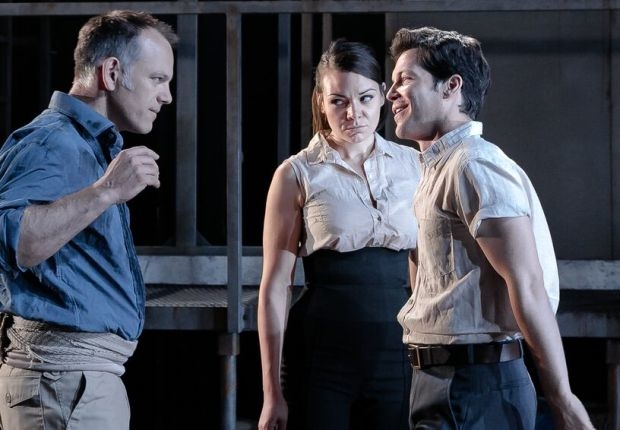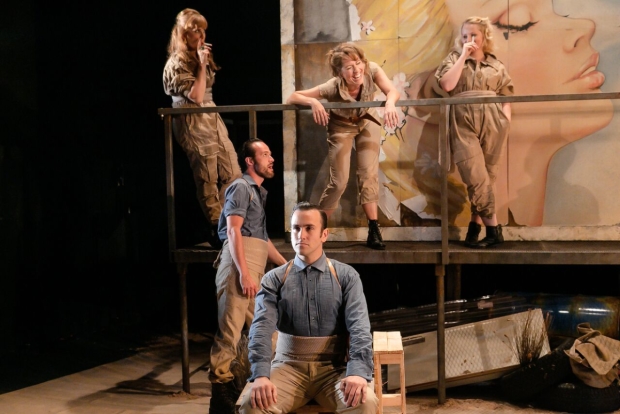Carmen (Soho Theatre)

© Andreas Greiger
Director-translator Robin Norton-Hale jettisons Bizet’s notion of the sultry Spanish man-eater and presents Carmen as the innocent victim of loutish men’s base instincts. She makes her case so persuasively that you’ll never stop to question it; indeed you may wonder, as I did, how you ever saw the character in any other light.
Christopher Hone‘s two-tier set, a metallic structure overlooked by an advertising hoarding, manages to be contemporary yet unspecific and is therefore an apt carrier for the production’s timeless message. Unfortunately its tough visual mood is punctured in the opening prelude by the palm-court gentility of Berrak Dyer‘s accompanying quartet, although it’s not long before Harry Blake’s reorchestrations come into their own with, as highlight, a touch of Sarasate brilliance from violinist Rosemary Hinton at the start of act four.
Besides, this is compact opera and there’s no point knocking it for what it’s not. The miracle is that so much about this Carmen actually works. The concept would go for nothing without the actor-singers to bring it off, and the cast’s four women in particular (at least those I saw, since all roles are double- or triple-cast) would grace any operatic stage. Lilly Papaioannou is every inch Norton Hale’s view of Carmen — an angry, defiant woman who dominates the opera yet never loses her vulnerability — and the demulcent flow of her mezzo lends a special distinction to the production. The devastation with which she sang her card aria was immense.
'Gripping, thrilling and thought-provoking'
Roisin Walsh was a rich-toned Michaëla and Camilla Bull turned Mercédès into something approaching a major character. But the revelation was Hannah Sawle as Frasquita, not just for the unwavering clarity of her high soprano notes (she has to carry much of the chorus top line as well as her own part) but for her magnetic facial acting. More than anyone else in the nine-strong cast she extended her performance beyond the written role through her vivid eye contact and convincing reaction work.
Marc Callahan is the pick of the men: his toreador Escamillo is a plausible lothario and he is blest with a pleasing baritone. Michael Bracegirdle is a secure José but his tendency to oversing at forte has the curious effect of diminishing his impact. That said, his performance during the lethal closing scene was hair-raising.
Perhaps the production needs a little longer to play itself in, but at present the players occasionally struggle to cover Bizet’s bridging passages during which a chorus would normally enter or exit. A bolder approach to score-pruning might have helped mitigate this (as the composer Marius Constant proved when he adapted the opera for Peter Brook‘s legendary intimate production). Neither does Norton-Hale entirely square the triangle of sung, spoken and mimed passages, the last of which tend to be a touch rhubarby.
Nevertheless, while one might crave more poetry in the stagecraft, with fewer low-energy moments where characters roam the stage in search of a dramatic purpose, overall this Carmen is a gripping, thrilling and thought-provoking achievement. It’s well worth getting up close to.











